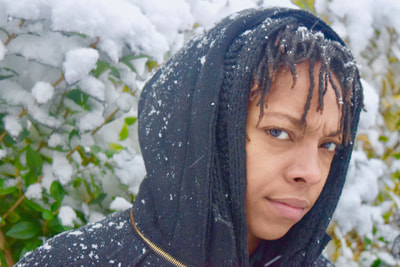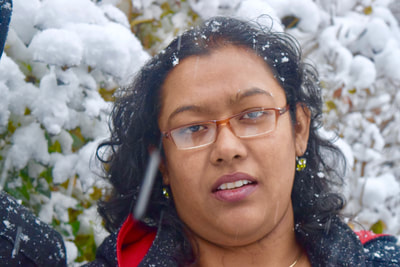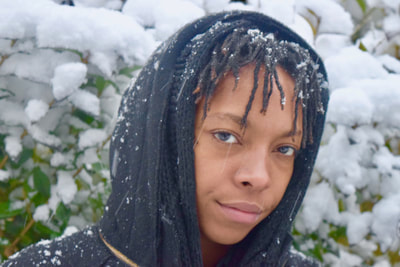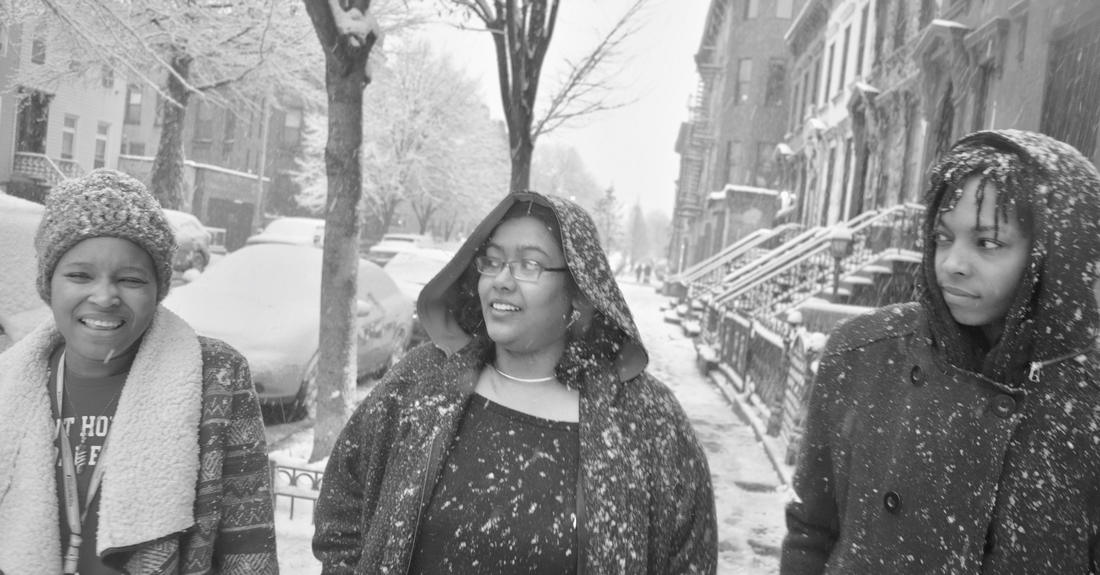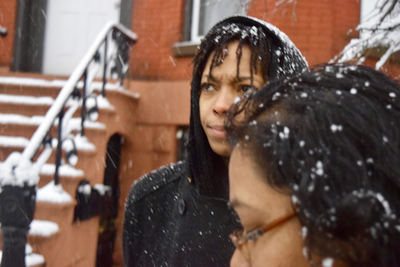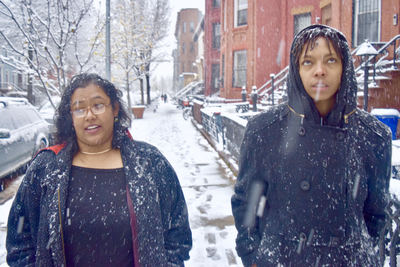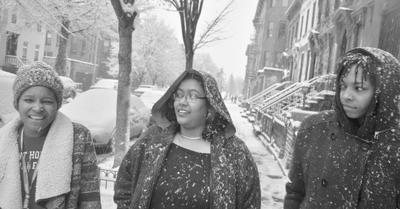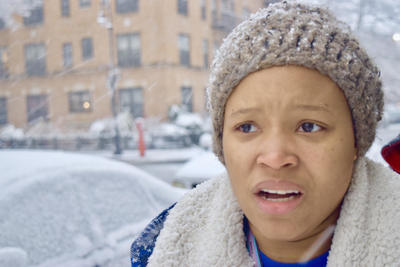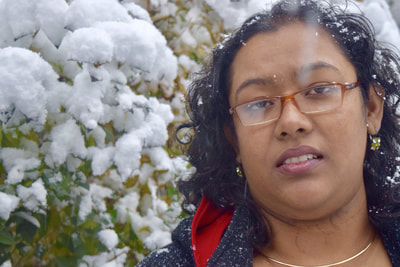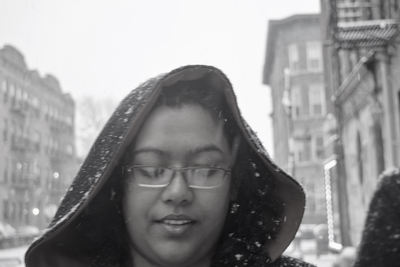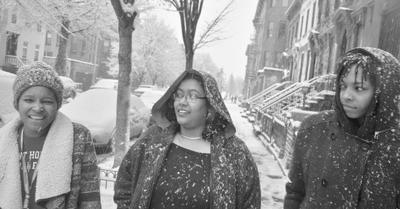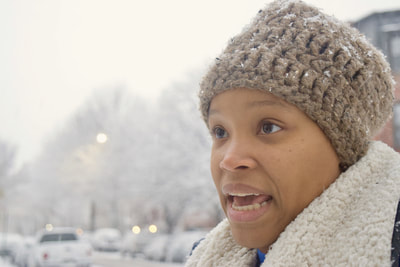|
By Tayllor Johnson Photography by Ademola Davis There is not going to be a 30-day yoga challenge at the end of this. No juice cleanses. No listicle of best places to buy sage or Groupon deals for spa treatments. No meditation social media accounts to follow. The rising heart rate, the shaking hands, the tears just waiting–no begging to be released, the clenched fist, and the gritting teeth are going to sit in these pages, just as they are; because they have been hidden in too many of us for too long. 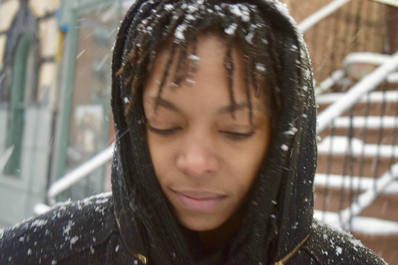 I do not remember when it started; when I realized that I was angry. It was only recently that I have found anger bubble up and make herself known in my everyday life. One night after a long day at work, I came home, kicked off my shoes, and leaned on my bed checking my messages and peeking at my Instagram explore page, like I usually do. And what was once nothing but puppies, nature posts, and some celeb gossip became a flood of a real fights caught on camera or a reality TV smack down carefully captured at the first hit. Since when was my explore page so violent? I asked myself. And without thinking I clicked on the 60 second fight: “Moniece Slaughter vs. Princess” and the spiral into projected anger began. Video after video–there was something about these brawls that I identified with. There was a part of me that wanted to release and snap too, but at who and for what? These Instagram algorithms were telling an alarming story of where my anger was going and how much I had. The list of things to be angry about as a Black woman living in America could go on and on and on… This is not new news. Our bodies, identities, wallets, and culture are constantly under attack by legislation, White Supremacists, Homophobes, Transphobes, Colonizers, and sometimes the people closest to us. We spend as much of our time, as Black woman, fighting for space as we do trying to enjoying it. Then we spend energy in that same space looking to heal from a country founded on our blood and bones and hungry for more. Add patriarchy coming for our womynhood or our vaginas and ovaries... we start to search for a space to recharge if nothing else. For some of us, it is not as simple as just being “home” or getting coffee with a friend. If you are like me, 3 jobs and working on a Master’s degree, space and time become a complicated relationship and finding a place to exhale within it all can feel like an impossible task. Yes, the fatigue is 4-dimensional, from all angles and sides. Some of us choose to take that fatigue and fight. Then we are met with erasure within our successes, as if we never started that movement, offered that thought, or contributed to America and its history in any way. Yes, we are angry, and frustrated and hurt and determined and another word that has yet to be discovered. What puzzled me most about my anger was that I hadn’t gotten a chance to know it until now, at 24 living in one of the least patient cities in the world. It became important to me that I know what my anger looked like and sounded like before it revealed itself outside of my control and I too became a 60-second video. My mentor warned me years before: “If you do not access your anger and release it, you will hurt someone.” And if any city was going to unlock my anger, it was going to be NYC. Anger and frustration are not strangers here. In Los Angeles, my hometown, I can only assume their anger and angst are locked in their cars with them, so I never got the chance to engage with millions of souls in a rush. Living in New York, you either witness rage or you are tempted into it. There was a moment when my partner got into an altercation with a woman on a packed train and something in me snapped, as she continued to yell obscenities at him. I found myself shouting back: “YOU ARE IRRELEVANT! WE ALL WANT TO GO HOME. SHUT THE F*CK UP!” I couldn’t believe the words that were coming out of my mouth and the words that kept wanting to spew out. Yes, if there was any time to become friends with my anger and articulate her on my own terms, it is here and now. 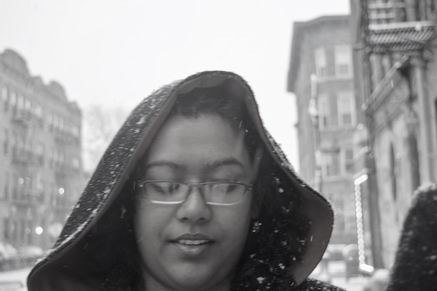 My anger is historical, political, personal, and spiritual. My anger is quiet but fierce; she comes from trauma; she is fueled by patriarchy and White supremacy; she is fed by the fear that America will succeed in killing me, my family, and my people. My anger is human. But when you are Black, it is more often than not a caricature to feed an idea. It becomes entertainment for the masses or propaganda to feed the fear that Black is unpredictable, uncivilized, and wild so we should shoot first, make excuses later. A Black person moves and the world flinches like we are walking land mines. Black women have not been given the opportunity to articulate their existence in their own words either. We are told we are “too much”; that we need to calm down and then, right before our eyes, our Womanhood is being commodified and monetized in mass media under drama, violence, ghetto, ratchet, urban, or worst. There is an inflation of content in mass media focused on WOC on WOC violence. America, we know, is fascinated with violence like a child exploring a new toy. Except in America’s case, this toy is centuries old. However, when it comes to women, violence becomes an assumed default, which makes it easy to turn it into comedy and entertainment without engaging with the repercussions of violence itself. We call it Reality TV, we call it a high school fight, middle school fight, and occasionally we call it an untimely death. It was once my passion to vilify reality shows as the problem, but nothing is ever that simple. Reality TV meets a need and supplies a demand. If that demand is exploitation of women of color, it is a choice companies, artists, and CEO’s alike are making to meet it. The question of who’s to blame is not as urgent to me as the question of why the reality TV phenomenon exists in the first place. In exploring my anger, I had to separate what was being dictated and projected onto me as “angry Black woman” from what my anger meant. It was epiphany upon epiphany and I couldn’t stop talking about it. I didn’t realize how few Black women speak their anger out loud. The confusion on my friend’s faces when I brought it up: “So what do y’all feel about anger as Black woman?” Slowly ideas where being thrown over wine glasses; experiences and questions about how to live with our anger, express it, and explore its roots. If only our #BlackGirlJoy could have as much healing space as our #BlackGirlAnger. Maybe then our language around anger can be truly ours. We will no longer be playing tug of war with our existence in isolation. We will begin to write and speak our own narratives. We will get to claim our anger and our joy for ourselves and maybe it won’t seem so scary anymore. 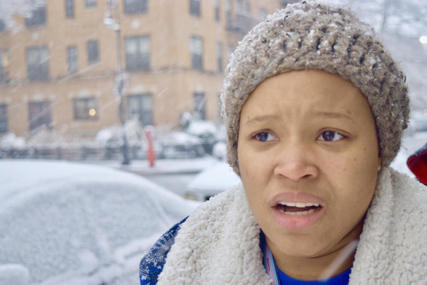 It is tiring to continue to counter the blows (metaphorical and physical) of the same stereotypes. We are multifaceted and complex beings. Sometimes we aren’t happy. Sometimes we don’t want to smile. Sometimes we don’t get along with each other. Sometimes we too need support and need to be held accountable by our peers and community. I found that in articulating my experience as a Black woman by using the language of the oppressor, I am unconsciously entertaining him in trying to prove him wrong. Not anymore. My existence doesn’t fit in a “they said so I’m responding” model. It is now an “I said” model. Period. End of discussion. With Trump ripping the façade from the “American Dream” and the global consequences of that realization some of us are waking up and reclaiming our time. We are reclaiming our time and our representation of our experiences on TV, movies, sports, politics, and in forms of resistance. The inspiration is contagious. In the same breath, I wonder what it would look like to have these conversations go viral, without the input of the oppressor. My anger, as she exists today, is still a mystery in many ways. As I said in the beginning, I do not have any answers on how to engage and express uncomfortable feelings while our humanity is at stake. All I have is a willingness to start a conversation. Community is my alternative to engaging with oppressive alternative facts regarding my existence. As I get to know myself and let my identity stretch, it will continue to change and require my attention and care. However, that is no longer an experience between just me, my phone, and the oppressive systems that feed those outlets. Now it can be me and the other Black women who choose to speak their truth, however she reveals herself, unapologetically. An Angry Conversation in Pictures |
| HUGE THANK YOU to the following people for taking the time and energy to be on this journey with me: Ademola Davis See Bio Jaba Dey a Bengali women living and working in NYC, and is taking the experience of being a brown immigrant in America one day at time Q Hailey a creative spirit dedicated to justice and freedom that is both physical and spiritual | 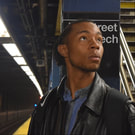 Ademola Davis (Ade) is a poet, writer, performer, singer/songwriter, photographer, videographer, and artistic force creating and educating in NYC. Born and raised in Brooklyn, NY, Ade's passion for the artistic form and investing in its boundaries and possibilities goes above and beyond the traditional and expected. Instagram: @theprincepoet FB: @PrincePoet "As a poet, my poetry is in my writing, singing, acting, whatever I can put myself into, my poetry is in. As a Creator, I'm still a poet" |
Author
Tayllor Johnson currently resides in New York City where she has begun her journey into Poet. Passion. Period. In between those learning moments, she sometimes has just enough time to jot a few lines...
Archives
March 2021
February 2021
September 2020
August 2020
June 2020
May 2020
January 2020
October 2019
August 2019
May 2019
April 2019
March 2019
February 2019
January 2019
December 2017
June 2017
April 2017
March 2017
January 2017
November 2016
July 2016
June 2016
January 2016
November 2015
October 2015
July 2015
May 2015
January 2015
August 2014
July 2014
June 2014
Categories
All
Education
Gun Violence
Health And Wellness
Language Arts
Meteorology
Millennials
NYC
Poetry
Social Justice
Spoken Word
Weather
Weather Channel
